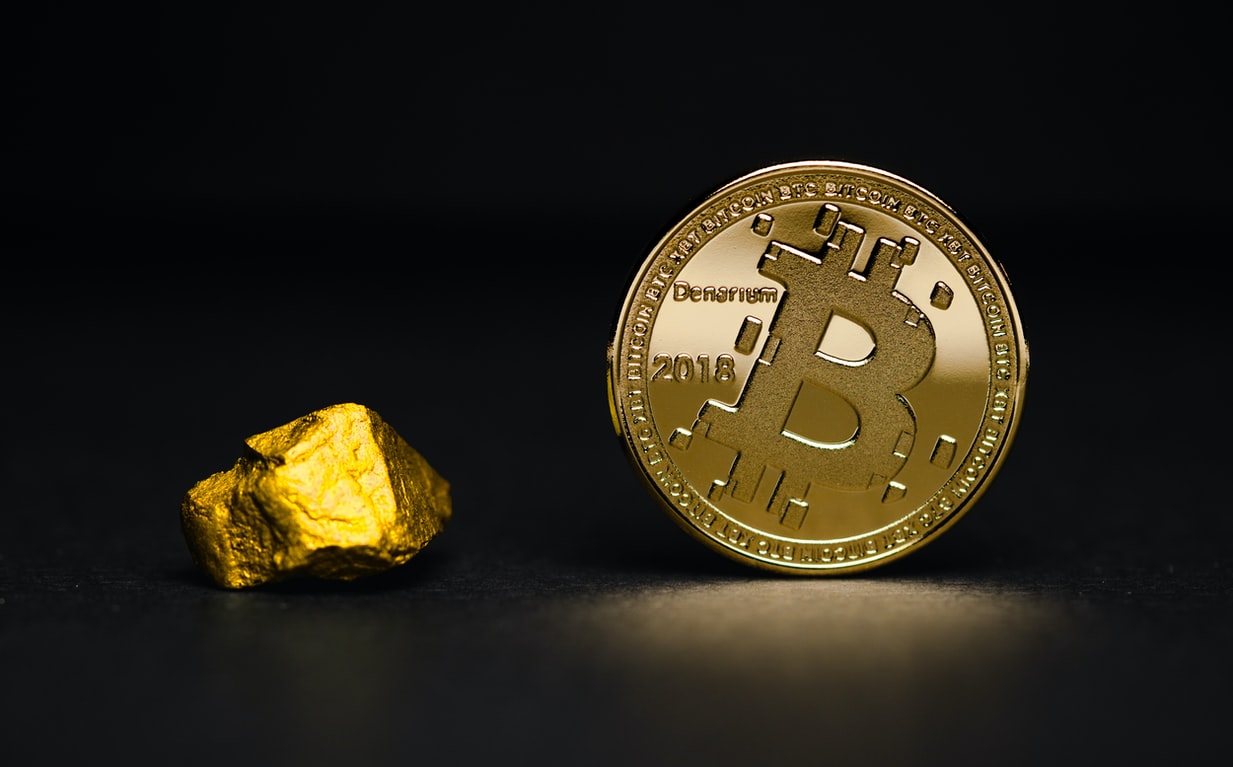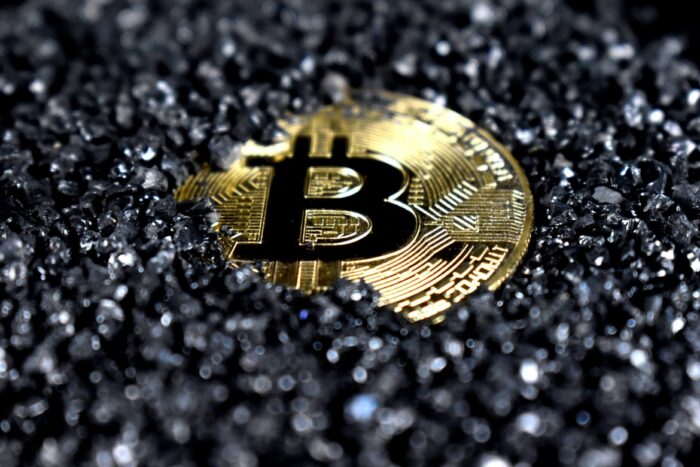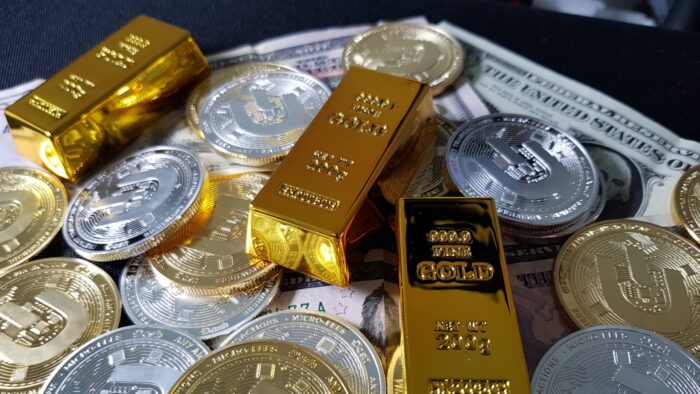
Bitcoin’s price has fluctuated dramatically since its introduction many years ago, as proponents try to establish embryonic technology as a widely used digital money. You may have begun to consider how to protect your wealth as a result of the COVID-19 recession.
Many investors believe that assets with a high store of value, such as Bitcoin and Gold, are a good method to protect their money. Gold, for example, has been used as a safe-haven commodity asset and inflation hedge for thousands of years.
However, Gold has been compared to a new asset called Bitcoin, as well as other cryptocurrencies. Bitcoin’s value has exploded in the last decade. Diversification is a benefit that both assets offer.
A Lil Bit About Gold
Gold has traditionally been seen as a safe-haven investment option. The yellow metal is desirable as a consumer commodity, such as jewelry, and it is scarce; it also has a lengthy history as an investment vehicle.
Furthermore, Gold’s liquidity has remained stable over time. People all across the world feel that when other investments fail to deliver stability, Gold is the best option.
As a result, anytime global equity markets are volatile or key countries are at odds, gold prices skyrocket. Even in times of crisis, the price of Gold is quite stable and does not decline much.
A Lil Bit About Bitcoin

Bitcoin is a digital currency (also known as cryptocurrency) that may be used to buy and sell goods and services from merchants who accept Bitcoin as payment. Holders of Bitcoin can buy, sell, and exchange goods and services without the need for a central authority or bank to act as an intermediary.
Bitcoin is one of the most well-known virtual currencies today, with its value skyrocketing since its inception in 2009. The objective of Bitcoin, according to Satoshi Nakamoto, its creator’s pseudonym, is to serve as an electronic payment system based on cryptographic proof rather than faith. Individuals and businesses use or accept bitcoin as a currency, while some people buy it as an investment with the hope of seeing its value rise.
Cryptocurrency enthusiasts have called Bitcoin “digital gold,” believing that the popular virtual currency would someday outperform actual gold bullion. Cryptocurrencies have recently aroused a lot of interest in India, with many Indian investors jumping on board.
Read more about cryptocurrency and its benefits in the current world.
Bitcoin is a Store of Value that is Easily Transferable
Bitcoin, like Gold, is long-lasting, interchangeable, secure, and limited. Bitcoin, on the other hand, is more portable, transferrable, and decentralized than Gold. Sovereign states such as the United States, Germany, China, and other European countries have a disproportionate amount of influence over the gold supply.
Anyone in the world, theoretically, can keep and secure Bitcoin considerably more readily than Gold. Gold enthusiasts can claim that Gold has intrinsic worth as a precious metal, whereas Bitcoin is only a fictitious currency.
The blockchain technology behind Bitcoin, on the other hand, has applications. In wealthy countries with relatively stale fiat currencies, Bitcoin has limited practical use cases as a money. In countries prone to hyperinflation and political unrest, however, Bitcoin is a preferred medium of exchange.
The popularity of Gold and Bitcoin

Bitcoin and Gold are both attractive alternative investments, but they appeal to distinct investor groups. Due to its long history and performance track record, comparatively strong fundamentals, and demonstrated effectiveness as an inflation hedge, among other things, Gold is more popular among older investors.
Some older investors recall the 1970s when inflation undermined the purchasing power of their dollars and savings accounts, and overall economic stagnation wreaked havoc on their portfolios. Depending on whom you ask, the government either stood by and watched or stoked the fires.
Investors flocked to Gold, which saw prices and profits increase, resulting in a windfall for investors. The situation calmed in the 1980s, although Gold’s price was still significantly higher. During earlier moments of market instability, Gold was the asset to hold, which explains the asset’s popularity among older investors.
Bitcoin vs. Gold: A Comparison of the Two
Many investors have faith in Gold. Bitcoin’s increasing popularity demonstrates genuine investor interest, despite the fact that it has no age on its side. So, let’s see what they have to offer you.
Transparency and safety

Compared to other investments, Gold carries fewer risks. The present trading mechanism is relatively secure, and it is difficult to tamper with the asset. Due to its encryptions, lack of a central structure, and complicated algorithms, Bitcoin traders are also immune to corruption. However, there are some concerns about safety. Simple errors can be disastrous, as evidenced by the Mt. Gox Demise, which resulted in significant losses.
The two assets have a lot of liquidity in common
Gold is widely regarded as one of the most liquid assets, with a steady supply of willing sellers and purchasers. As a result, you can convert it to cash without losing a lot of money. Similarly, Bitcoin has a high level of liquidity most of the time.
Conclusion
Diversifying a portfolio can help to reduce risk and the possibility of loss. Most investors employ this method in some fashion, and many feel that Bitcoin and Gold can be beneficial. Bitcoin is a non-correlated asset, which means it isn’t linked to the stock market in any way. As a result, a minor investment in Bitcoin in a typical account has the potential to boost profits while lowering overall volatility.
Diversification of your assets, such as Gold, helps preserve your money. Because it moves in the opposite direction of the dollar, it can help you hedge against inflation or a financial disaster. This is a preferable alternative for investors who desire a higher level of security. Both Gold and bitcoin have a place in the market.
Each has advantages and disadvantages that will appeal to different sorts of investors. Bitcoin offers great potential returns and diversification but at the expense of security. Because Gold is regulated, it allows you to control risk better when you add it to your portfolio, but it offers less promise in terms of returns. Furthermore, both options raise ethical issues.














